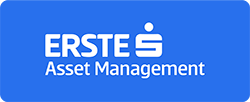 The significant deterioration of the geopolitical security situation as well as another jump in commodity prices led to an increase in risk aversion on the capital markets during Q1 2022.
The significant deterioration of the geopolitical security situation as well as another jump in commodity prices led to an increase in risk aversion on the capital markets during Q1 2022.
Following the escalation of the conflict between Russia and Ukraine, global stock markets suffered losses. The extent of the price declines was fairly uniformly distributed across the regions. However, cyclical indices such as the DAX and the ATX fell particularly sharply.
Oil benefited from the war, as lower production is expected from the military conflict. Commodities also posted gains for similar reasons. Political efforts to bring countries such as Iran and Venezuela back into the production cycle have not yet been successful.
Combating high inflation
Inflation rates were higher than expected in many cases in the month of February (OECD area: 7.7% y/y). Energy prices recorded the strongest increase. Inflation in food prices was equally considerable. It is noteworthy that core inflation (excluding food and energy) was also strong. High core inflation rates are an important reason for central banks in advanced economies to bring forward or accelerate the cycle of interest rate hikes. With the war in Ukraine, commodity prices have risen further. Mainly for this reason, the first inflation reports for March show further inflation increases (Germany: 2.5% monthly / 7.6% annual). Inflation rates could climb further in the coming months. This is also indicated by the preliminary purchasing managers' index for March: Companies' selling prices continued to rise in March. Consumers' inflation expectations are also rising. The risk of secondary round effects is greater the lower the unemployment rate (low at 5.3% in the OECD area) and the stronger the economy is growing (the less the economy is affected by the war in Ukraine).
Pressure on central banks increases
From a market perspective, the most important recent event has been the further increase in U.S. key rate hike expectations priced into the market. A key interest rate of just under 2.5% is now priced in for December 2022, and an interest rate of just under 3% for December 2023.
The decisive factor for this was a speech by Fed Chairman Powell entitled "Restoring Price Stability". Little was new in terms of content, but the tone was even more hawkish than the Federal Open Market Committee press conference a few days earlier. The speech described the labor market as very strong and inflation as far too high. The answer to three self-asked questions was clearly "hawkish," i.e., focused on achieving the inflation target in a hawkish tone.
Many losers - few winners
Apart from commodities, only the following asset classes were able to buck the general trend: inflation-linked US government bonds, Chinese government bonds and gold. Thus, the picture since the beginning of the year can be summarized quite compactly: With the exception of commodities, gold and Chinese government bonds, all asset classes are clearly in the red.
Equity markets are currently rated neutral. Due to the currency development, emerging market bonds in local currency are viewed positively, high-yield bonds in the U.S. due to the already more attractive yield levels. We maintain a cautious view on developed world government bonds (interest rate risk) and a neutral rating on investment grade corporate bonds.
More on the stock markets: blog.de.erste-am.com
Author:
Paul Severin
Member of the ÖVFA Board
Head of Communications Erste Asset Management
5 April 2022
 |  |
Note
Wiener Börse AG would explicitly like to point out that the data and calculations given in this report are historic values, which do not permit any conclusions as regards future developments or value stability. Price fluctuations and loss of capital are possible in securities trading. The contribution is the personal opinion of the analyst and does not constitute a financial analysis or a recommendation for investment by the exchange operating company, Wiener Börse AG.
